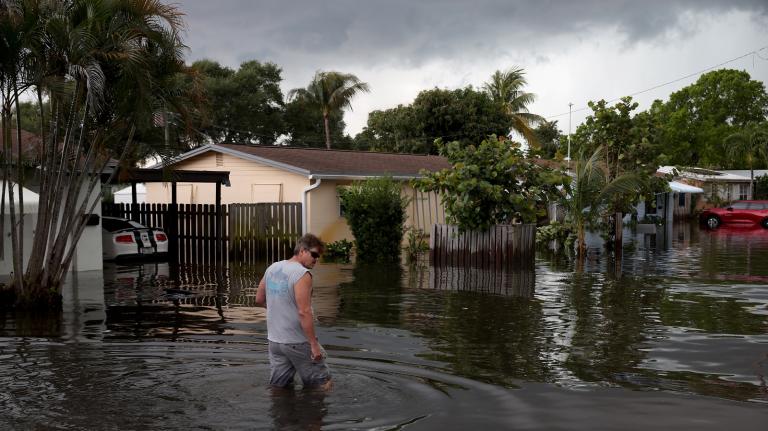The ant works hard in the withering heat all summer long, laying up supplies for the winter. The grasshopper plays his fiddle and dances the summer away. Come winter the ant is warm and fed. The grasshopper dies in the cold.
This tale is attributed to Aesop, a Greek ex-slave who lived around 600 B.C. I wonder how many parents have told it over the centuries to how many children, trying to impart the virtues of foresight and industriousness.
An email version crossed my screen the other day, altered not to teach a virtue but to express resentment and fear. It went, in essence, like this. The ant works hard in the withering heat all summer long, laying up supplies for the winter. The grasshopper plays his fiddle and dances the summer away. Come winter the grasshopper calls a press conference and demands to know why the ant should be warm and fed, while others are starving. The networks broadcast heartrending pictures of the shivering grasshopper and the comfortable ant.
A member of the NAGB (National Association of Green Bugs) shows up on Nightline, charges the ant with green bias and says the grasshopper is the victim of 30 million years of greenism.
Kermit the Frog appears on Oprah and sings “It’s Not Easy Being Green” with a grasshopper fiddle orchestra. The audience weeps. Bill and Hillary Clinton tell Dan Rather they will do everything they can for grasshoppers denied prosperity by ants who benefited unfairly during the Reagan Summers.
The piece goes on in this vein. Whoever wrote it was on a roll. The story ends with the grasshopper finishing up the ant’s food, while the government house he’s in — the ant’s old house — crumbles around him because he doesn’t know how to maintain it. The ant has disappeared in the snow. The person who forwarded this revised tale to me did so out of disgust, not amusement. She couldn’t resist adding her own version, which went something like this.
The ant uses an inheritance to make a killing in the stock market, then invests billions in hedge funds based on the currency of the emerging economy where the grasshopper lives. As the market bubble created by speculating ants bursts, the ant quickly shifts his fortune into dollars. The currency collapse wipes out the grasshopper’s tiny savings and his job. Ants who pull their money out too late are recompensed by the International Monetary Fund, the money coming from the taxes of grasshoppers everywhere.
The IMF, in return for saving the currency, demands that the grasshopper’s government undertake “structural reform,” meaning sharp reductions in social services. Grasshopper children have no school, no health care, no food. The desperate grasshopper demonstrates in the streets and is thrown in jail. The ants, after making sizable campaign contributions to politicians of all parties, bask happily on a cruise liner.
I sighed as I read these alternate versions of the old story. So mean-spirited. So laced with envy, distrust, hurt. I wonder how many parents have told some rendition of the story of the lazy, undeserving poor or the greedy, undeserving rich to their children, thereby imparting their own bitterness to the next generation. I wonder if we will ever get beyond our self-serving caricatures of people who have more or less money than we do.
Surely we all know — don’t we? — that some rich people have struggled hard for what they have, while others have had wealth dropped upon them and are as indolent as any grasshopper. Couldn’t we all admit that there are some folks who will live happily from the largesse of others without even being grateful, and also some hardworking ones who remain poor because they have dozens of strikes against them, many administered deliberately or inadvertently by those who are rich?
Max Weber said long ago, “The fortunate is seldom satisfied with the fact of being fortunate. Beyond this he needs to know that he has a RIGHT to his good fortune. He wants to be convinced that he ‘deserves’ it.”
I’m tired of that infantile need. I’d like to see us admit once and for all that virtue is very imperfectly correlated with wealth. Then I’d like to see us, having gotten beyond false excuses for our widening, cruel, guilt-inducing, fear-inspiring, disheartening class divisions, make those divisions disappear.
So here are some ways I might rewrite Aesop’s fable:
The ant goes to the grasshopper one chilly fall day and says, “You know, I’ve got way more than enough to get us both through the winter. Here’s your share; you can play your fiddle for me, and next summer we can work together and put up plenty for us both. That will give me some time to play too.”
The grasshopper goes to the ant and says, “You know, I haven’t been very productive or responsible, but I want to be. It’s hard, when I have so little land, capital, education. I want to be an equal contributor, not an indentured servant. I’m willing to work and learn. Help me do that.”
The ants and grasshoppers sit together and talk, with a pledge to keep minds open and cheap shots to a minimum. The grasshoppers show the ants the many ways in which the economy systematically privileges ants and grinds grasshoppers down — and the ants listen. The ants tell the grasshoppers about the disappointments, disorderliness, crime they have suffered from grasshoppers — and the grasshoppers listen.
Then what? How would you write the story so it tells our children not about a world we hate, but about a world we’d like to live in?


